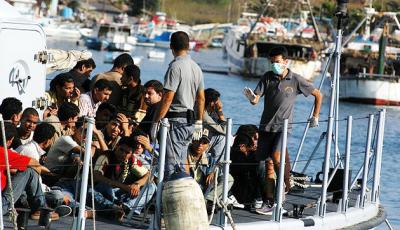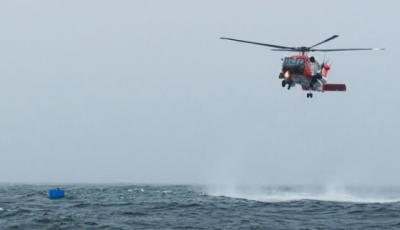Guest post by Theodore Baird, a postdoctoral researcher at VU Amsterdam in the Faculty of Law, Migration Law Section. He is a member of the Human Costs of Border Control project and a regular contributor to OpenDemocracy. He publishes on issues of human smuggling, EU border security, Turkish politics, and international migration. Theodore’s book, Human Smuggling in the East Mediterranean, is forthcoming with Routledge in 2016 in the series Criminal Justice, Borders and Citizenship. This post is the final installment of Border Criminologies themed series on Human Smuggling organised by Gabriella Sanchez.
In a recent article in the Journal of Ethnic and Migration Studies entitled ‘Scrutinising the double disadvantage: Knowledge production in the messy field of migrant smuggling,’ Theodore and Ilse van Liempt (Assistant Professor at the University of Utrecht) explore the diverse literature on human smuggling and scrutinize the pitfalls of doing research on such a messy topic. This blog post outlines some of the implications of their findings for current state responses to human smuggling.

Popular media conceptions of human smuggling, largely sensationalist, present a picture of global mafias engaged in multiple nefarious activities stretched across borders and led by ‘evil geniuses’ and ‘masterminds.’ Popular political accounts in Europe portray smugglers as ruthless profiteers who have no regard for life and engage in unscrupulous deceptions. The literature, however, points to human smuggling operating more like a ‘transnational service industry’ composed of a range of transnational networks engaging in task-based activities varying by local context and strongly related to state corruption. Nevertheless, recent accounts of the involvement of armed groups in refugee smuggling from Libya to Italy and reported attacks on refugee boats in the Aegean heighten concerns about the brutality of human smuggling and the relations between violence, conflict, and its ongoing prohibition.
Smuggling scholarship also posits the practice as at odds with current EU approaches to ‘combatting’ smuggling. Multiple human smuggling sources claim the very practice of smuggling stems from the state itself, with sovereign control over borders and immigration serving as the primary ‘temptation’ (to borrow from Adam Smith) to engage in the practice. EU efforts to enhance border controls and strengthen the policing and prohibition of the practice―through, inter alia, enhanced police and judicial cooperation; intelligence gathering, sharing, and analysis; financial investigations; enhanced border surveillance and management; and militarized seizures and destructions of boats on the high-seas―actually serve to re-produce the practice rather than diminish it. For example, although the EUNAVFOR Med Operation Sophia aims to disrupt the ‘business model’ of human smuggling in the Central Mediterranean, it’s unclear how military tactics designed in anti-piracy operations off the Somali coast will apply in the case of human smuggling in the Mediterranean. After all, human smuggling is neither piracy nor terrorism, and the disastrous effects of the long-term wars on drugs and terrorism may foreshadow the harmful effects that militarized anti-smuggling operations will have on fundamental rights and ongoing conflict. Confusions surrounding the alleged assassination of a key human smuggler in Zuwara, Libya in September 2015 only serve to heat up conditions on the ground and provoke more conflict.

In conclusion, human smuggling scholars must be aware of how their work may (re)present the practice, as research on the topic is conducted in an environment of media saturation, active criminalization, and ongoing militarization of prohibition. In such a politically and ethically sensitive context, researchers must work together and across disciplines and engage in a constructive dialogue to overcome the double disadvantage, transforming the ways in which we conceptualize, theorize, and respond to human smuggling practices. Critical analysis of our own research can provide a much-needed alternative in the political, ethical, and theoretical messiness in which the topic is embedded.
For more, check out the article Ilse and I wrote online.
Any comments about this post? Get in touch with us! Send us an email, or post a comment here or on Facebook. You can also tweet us.
__________
How to cite this blog post (Harvard style):
Baird, T. (2015) The Double Disadvantage of Migrant Smuggling Studies. Available at: https://www.law.ox.ac.uk/research-subject-groups/centre-criminology/centreborder-criminologies/blog/2015/11/double (Accessed [date]).
Share:








